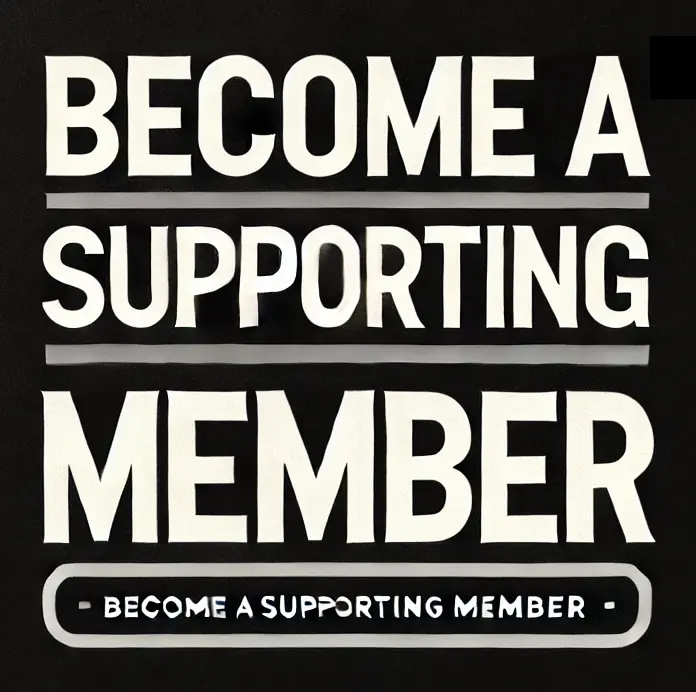
Are you in any parasocial relationships? At first, your instinct may be to deny the possibility entirely. After all, aren’t parasocial relationships a problem for loners and people who are chronically online? Not necessarily. Anyone can find themselves in a parasocial relationship, even people who are relatively emotionally healthy. Let’s talk about it?
What is a Parasocial Relationship?
First, what’s a parasocial relationship? It is a one-sided relationship between a person and a known figure. That might be an influencer, actor, musician, author, or someone else who has gained some level of fame. To be counted as a parasocial relationship, the person who is famous must not know the other person on any meaningful level.
Using that as our criteria, most of us are in at least one parasocial relationship. That’s fine. There’s nothing inherently wrong with parasocial relationships, but more on that in a minute.
Do you follow a celebrity on social media, know about their latest relationship or their favorite food? Do you know where they’ll be performing next? Do you look forward to seeing their latest TikTok? Unless they know you on the same level – you are in a parasocial relationship.
Why Are We Talking About This Now?
Earlier in 2024, pop star Chappell Roan posted a couple of videos and a written statement about disturbing behavior she encountered. This included unwanted sexual and physical contact, doxxing her family members, stalking her, and screaming at her in public. She made it clear that these behaviors were frightening and alarming to her. She asked fans to respect her boundaries, noting that she loved and appreciated fans, but that this should not be transactional.
She received some backlash from people who accused her of being ungrateful, and who failed to understand the genuine fear that women experience when being aggressively pursued, being denied their privacy, or having people invade their physical space without consent. However, she received much support and affirmation, from many people who agreed with her basic request for respect and agency over her own body.
Many women in the entertainment industry applauded her for making this statement, and shared their own stories of stalking and harassment from people who take parasocial relationships too far. This includes Jewel, Stevie Nicks, Lady Gaga, Hayley Williams, Maya Rudolph, and Olivia Rodrigo.
Queer, Indie Pop duo Tegan and Sara also spoke in support of Chappell Roan. The two are also the subject of a Hulu documentary, Fanatical. This explores the catfishing and identity theft the two experienced at the hand of a fan with bad intentions. The impacts of this were devastating and extensive.
However, even before Chappell Roan and other women began speaking up, parasocial relationships have been an issue – at least the unhealthy ones. President Ronald Reagan was shot because of a fan’s parasocial relationship with Jody Foster. Actress Rebecca Shaffer was murdered when a fan imagined a relationship with her and became enraged when she did not reciprocate. There are online influencers who have had to leave social media because of obsessive behaviors, and others who have had to significantly increase their security.
Is Your Parasocial Relationship Unhealthy?
So, where is the line? What’s the difference between a normal parasocial relationship and one that becomes unhealthy? Here’s some great information on the good and bad of parasocial relationships.
The Good Side of Parasocial Relationships – Fan Perspective
A healthy parasocial relationship can make you feel good. It’s a way for you to interact with an artist and their art in a way that fulfills you. There’s nothing abnormal or unhealthy about feeling a connection to someone, even if they don’t know you in the same way. Here are some examples of safe, sane, and healthy parasocial interactions:
- Following a celebrity on social media
- Experiencing feelings of happiness when you consume that person’s art or content
- Looking forward to life updates from the celebrity
- Being curious about gossip or behind the scenes information about a celebrity
- Buying the person’s merchandise, attending shows, going to meet and greets
- Taking part in a fandom
- Feeling happy for a celebrities successes or sad when they struggle
The caveat here is that none of these behaviors should interfere with your ability to live your daily life, or lead to unsafe thoughts or actions.
The Good Side of Parasocial Relationships – Celebrity Perspective
Influencers, musicians, actors, and others need fans. These are the people who purchase the products they make. Every fan relationship is essentially a parasocial relationship. When these are healthy and kept in perspective with consent and respect for boundaries, famous people benefit financially. Some may even benefit emotionally.
Many celebrities enjoy and appreciate at least some level of fan interaction and engagement. They simply prefer that it happens in a way that is safe, consensual, and with respect for their privacy.
The Bad Side of Parasocial Relationships – Fan Perspective
It can be difficult for a fan to know when their parasocial relationship has gone too far. There’s a gray area in that not all famous people set the same boundaries. Also, people tend to be able to see unhealthy relationship patterns much better from the outside, not so much when they are the ones engaging in red flag behavior.
Worse, many behaviors that indicate a healthy parasocial relationship might also indicate one that is not so healthy. It’s really a matter of degrees. Here are a few examples.
Healthy Parasocial: Googling a celebrity to look for recent interviews they’ve done.
Unhealthy Parasocial: Googling a celebrity to find their parent’s home address.
Healthy Parasocial: Checking a celebrity’s social media for new posts a couple of times a day.
Unhealthy Parasocial: Checking their social media so obsessively that you are no longer productive at work.
Healthy Parasocial: Asking a celebrity to autograph a shirt at a meet and greet event
Unhealthy Prasocial: Encountering a celebrity who is out as a private citizen and becoming angry when they don’t consent to an interaction with you.
Healthy Parasocial: Feeling a basic level of empathy for or wishing a celebrity well when they are struggling in their personal lives.
Unhealthy Parasocial: Believing you are uniquely qualified to give a celebrity advice or believing you have a role of close confidante or friend that does not reflect reality.
Here’s something to consider. How would you feel if a person you did not know, but who knew you, believed they had a relationship to you that was equivalent to a close friend or family member?
The Bad Side of Parasocial Relationships – Celebrity Perspective
When parasocial relationships go too far, celebrities’ lives can be in danger. People have been murdered, threatened, and assaulted. Unsafe parasocial behavior makes it difficult for famous people to engage fans on any level because they reasonably fear encouraging obsessive behavior.
How to be a Little Bit Less Parasocial
Let’s start with the biggest issue first. If you have a parasocial relationship with anyone that is leading you to have thoughts of harming yourself or others, get help. You should also pursue counseling if these relationships are causing you problems in your daily life. You deserve to have genuine, healthy interactions.
Sometimes, parasocial relationships happen because people feel disconnected from others. If you can, try to resolve that. Check in with friends and family. Build a social circle that doesn’t just exist online. Try this app to connect romantically or just find a new friend.




















